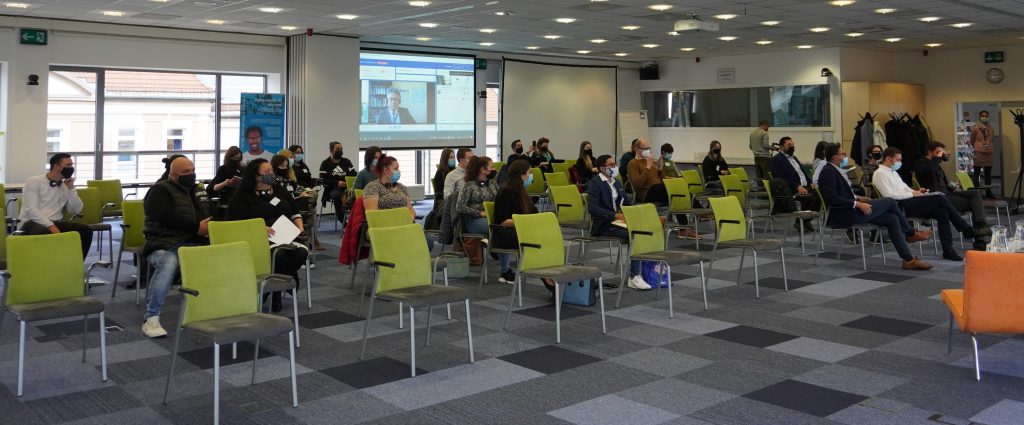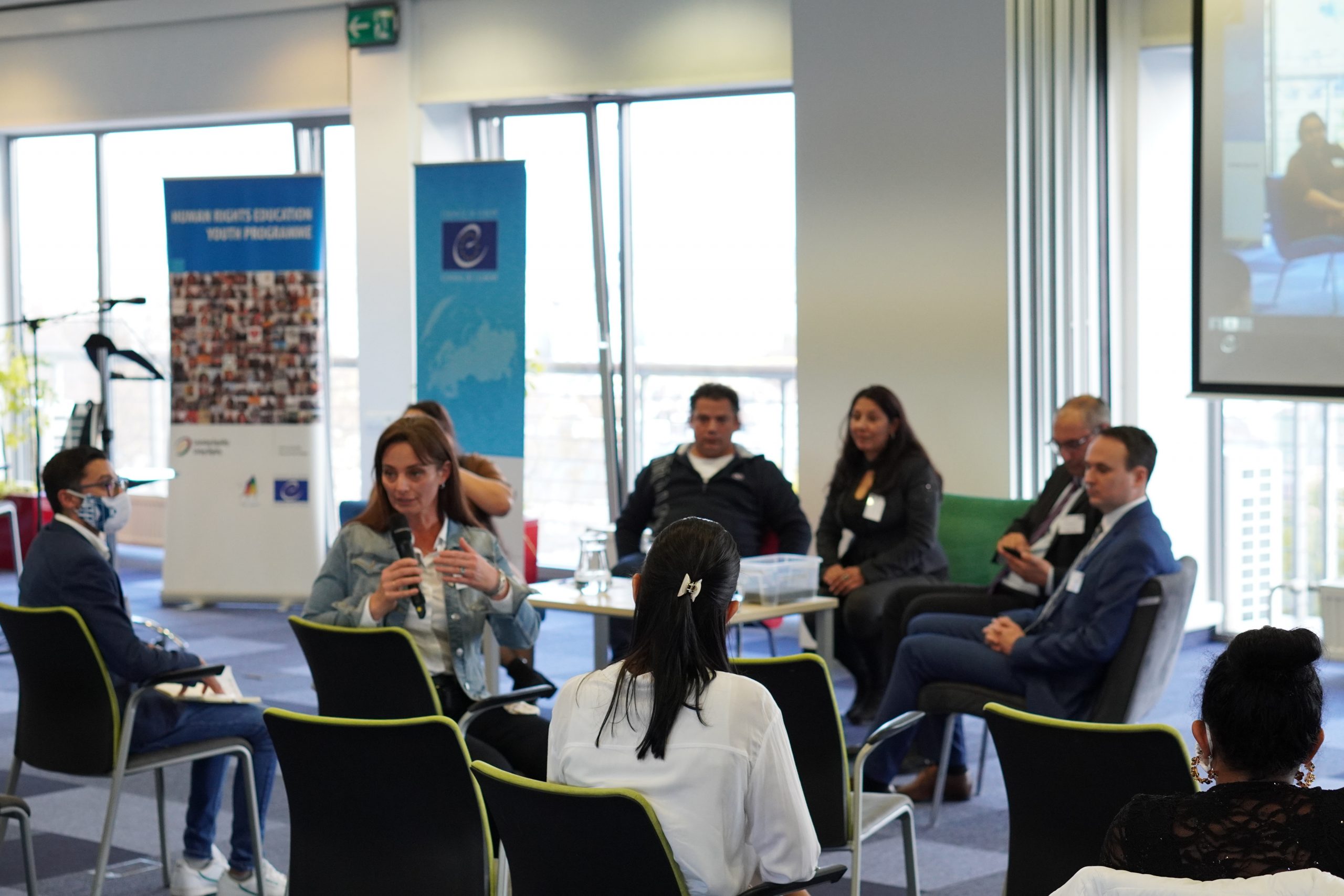The Roma Youth Conference, organized in cooperation with RGDTS-Phiren Amenca, the European Youth Center Budapest and the National Youth Council Hungary, took place on November 8. 2021, with the aim of strengthening the public participation of young Roma people.
The presentations and panel discussions were combined in a hybrid format, online and offline. For the event almost 100 people pre-registered and more than 60 young Roma and non-Roma, representatives of Roma civil society and participants from international and Hungarian institutions active in the field of youth were present.
The participants were first greeted by Thorsten Afflerbach, Head of the Secretariat for Roma and Travelers of the Council of Europe, Marietta Herfort, Director of the Phiren Amenca International Network, Bálint Molnár, Deputy Director of the European Youth Center Budapest, and Zoltán Hegedüs, President of the National Youth Council.
In their opening speeches, they briefly described the key issues, events and strategies affecting or targeting Roma youth and welcomed the organization of the conference as an excellent platform for thinking together, sharing experiences and continuing constructive discourses.
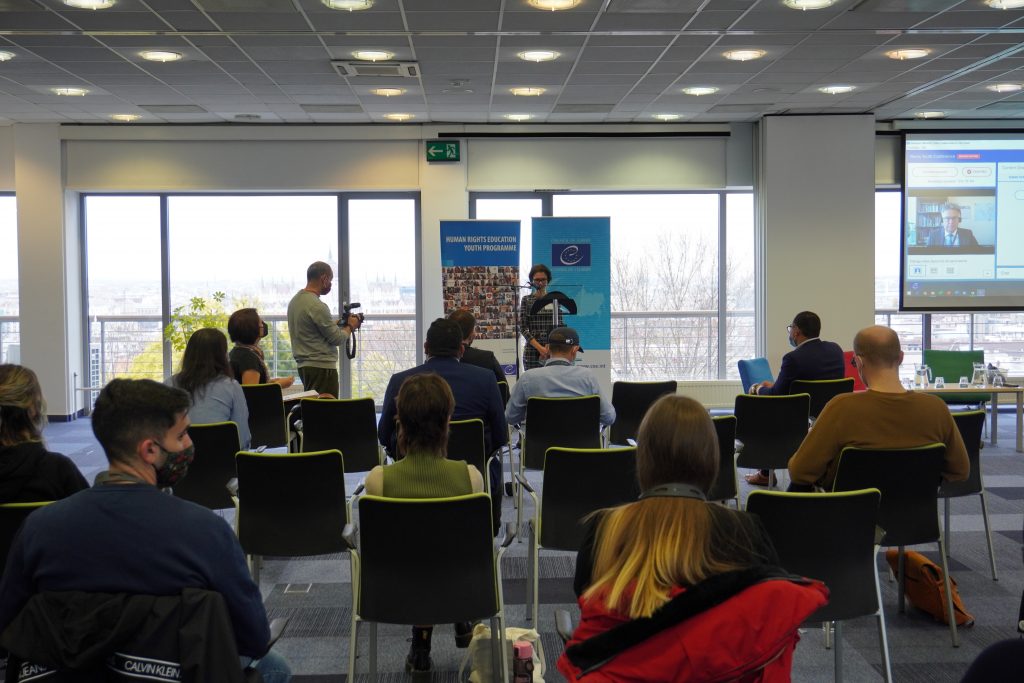
The topic of the first lecture was the presentation of the research entitled “Roma youth participation in Europe: Challenges, needs and opportunities”. Simona Torotcoi, political science researcher, presented the European-level research of Phiren Amenca International Network and their partners to highlight the challenges, needs and opportunities facing Roma youth in their every day life but also in terms of their civic and political participation.
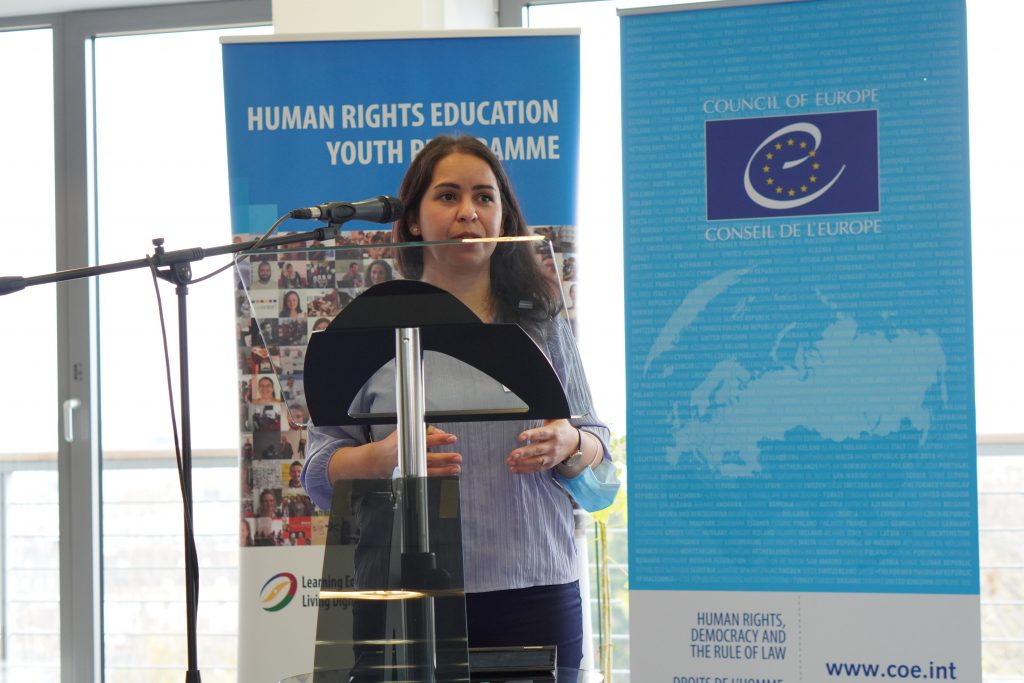
The research included online surveys of Roma youth (290 respondents from 16 European countries) and with Roma youth and NGOs working for Roma youth. The results show that the main and most common concerns of Roma youth are related to racism and discrimination, access to education and training, employment, and participation in public and social life.
About 95% of respondents said they had already faced discriminatory words, behavior or gestures against Roma, and in fact they were the victims of them. The researcher identified the lack of participation of Roma youth in public and political life as a further problem, which is particularly spectacular in mainstream youth structures and she drew attention to young people’s lack of trust in state and public institutions. The research is available at the Phiren Amenca website.
The next speaker was Herfort Marietta, director of Phiren Amenca, who spoke to young people about the policies and strategies that can promote their active participation in public life. In this context, she presented the Roma Youth Action Plan of the Council of Europe and the EU Roma Framework for equality, inclusion and participation 2020-2030 of the European Commission.
Marietta highlighted that the new EU Framework intends to address Roma inequality within EU through focusing on equality, inclusion and participation as horizontal objectives with measurable targets and is prioritizing Roma youth and Roma youth issues through a dedicated chapter. She also talked about the launching of the Roma Civil Monitor 2021-2025 run by the Central European University and its partners which is also a way to participate in the monitoring process of the implementations of the national Roma strategies, to which she also encouraged the participants and their organizations.
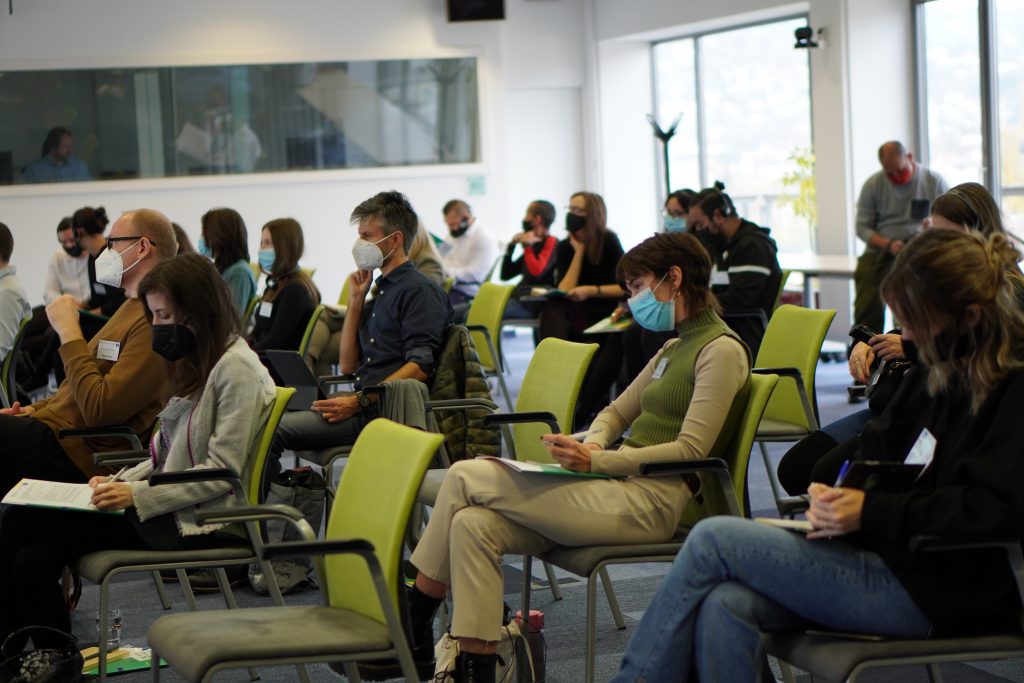
After the presentations, in the “Representation of Roma youth in national and international youth organizations, initiatives and strategies” panel moderated by Atanas Stoyanov from Phiren Amenca took part representatives of the European Commission, the National Roma Contact Point of Slovakia, the Advisory Council on Youth of the Council of Europe and the European Youth Forum.
Lavinia Banu, Policy Officer at the Roma Team of the DG Justice of the European Commission stated that for the first time Roma youth are prioritised at the EU Roma Framework for Equality, Inclusion and Participation up to 2030. There are certain heading targets in this strategic document that concern young Roma mainly in the field of decreasing school-dropouts and the number of Roma youth NEETs in general.
It was also underlined that the European Commission highly encourages national Roma contact point, through guidance and the means of national Roma platforms, to involve young Roma directly in their work as employees or trainees but also to make sure that Roma youth – individuals and organizations are being consulted and are part of the decision making around the implementation and monitoring of National Roma Strategies. As a good example to involve young Roma was given the National Roma Contact Point of Romania where there is a traineeship for young Roma. Another good example was the involvement of young Roma in the National Roma Platform project of Bulgaria.
Marek Comanic – Team Leader at the National Roma Contact Point of Slovakia shared with the audience their best practices to include young Roma in their work: traineeship program for young Roma at the National Roma Contact Point with young Roma being consequently employed there and working on the design of the action plan of the Roma strategy; an Advisory Roma Youth Body that needs to be consulted and work on a ‘Roma-youth’ friendly version of the Slovak Roma strategy to be made more accessible for young Slovak Roma.
Georgina Laboda – a Roma rapporteur at the Advisory Council on Youth of the Council of Europe (on behalf of Phiren Amenca) shared that in the last few years an enormous amount of work was done by the Council of Europe to prioritize young Roma high in the political agenda of the Council of Europe and that currently the administration is drafting a Council Ministerial Recommendation on Roma Youth to propose to the member states of the Council of Europe.
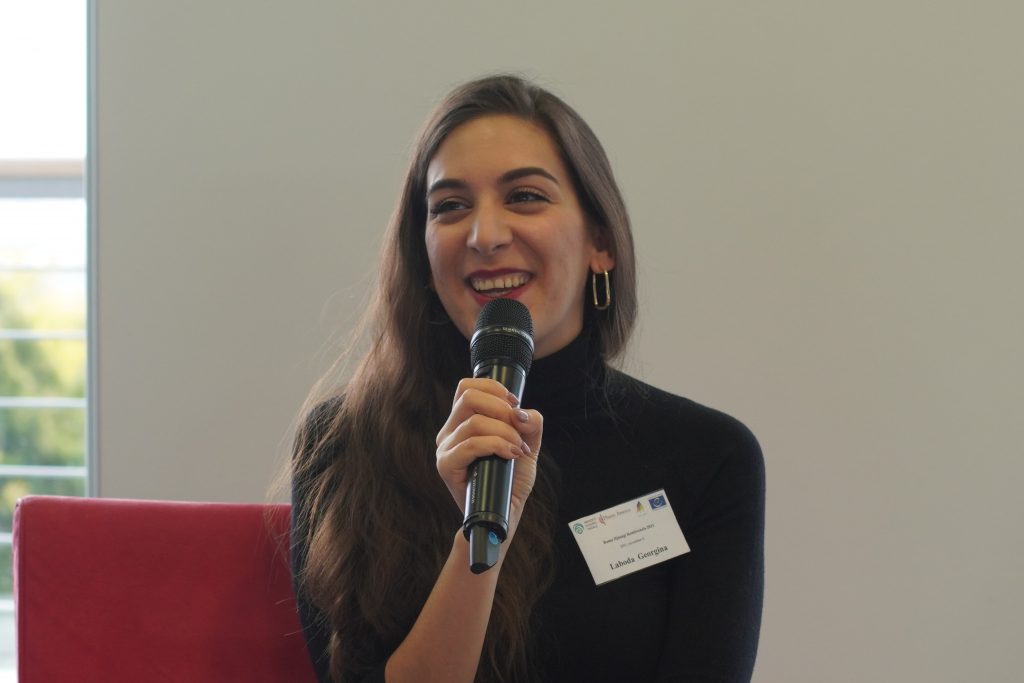
Paulína Jalakšová, Board Memmber of the European Youth Forum underlined the importance of having Roma youth organizations such as Phiren Amenca to be members of the European Youth Forum. She stated that the Forum is doing constant efforts to increase its diversity and that in November 2020 they have adopted a Motion on Combatting Antigypsyism and Roma youth participation to which all the national youth council and international youth organizations have committed.
In the afternoon two panel discussions took place followed by smaller working groups on different topics.
Tamás Török, head of the Secretariat of the Deputy Ombudsman for Nationalities, Attila Sztojka, Government Commissioner responsible for Roma relations and Anna Orsós, staff member of the European Roma Rights Center participated in the panel discussion entitled “Equality, access, social inclusion and participation of Roma youth in our country in terms of their basic and civil rights”. The panel discussion was moderated by Fruzsina Balogh, a member of the Civil College Foundation.
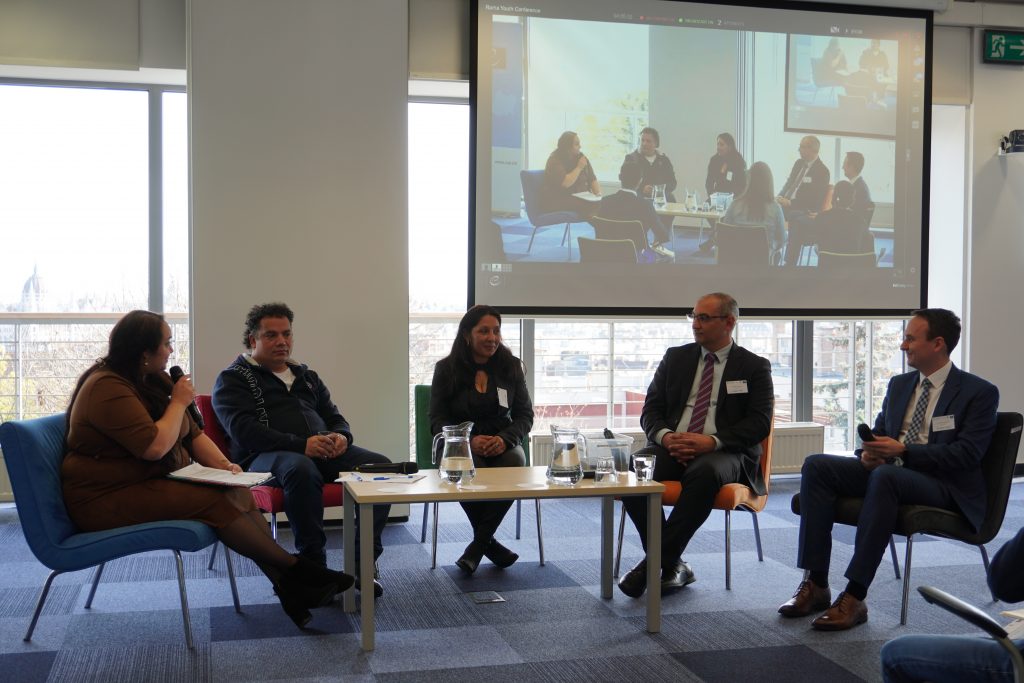
During the conversation, Tamás Török talked about the tasks and powers of the ombudsman and the deputy ombudsman, the different areas of legal protection and advocacy, as well as the current situation and challenges of policy concerning the Roma. During the panel discussion, the participants explained in detail the problems and challenges they face in their work, mentioning some cases, and then engaged in a constructive discussion about school and regional segregation, as well as the current trends of hate speech and hate crimes.
The panel discussion “Possibilities of involving Roma youth in decision-making processes within the framework of youth and Roma strategies” was moderated by Jósa Bálint (Subjective Values Foundation), with participants Katalin Victor Langerné, Deputy State Secretary for Social Inclusion, Gergely Mohay, Department Responsible for Youth at the Ministry of Human Resources and Judit Ignácz, representative of the UCCU Informal Roma Education Foundation.
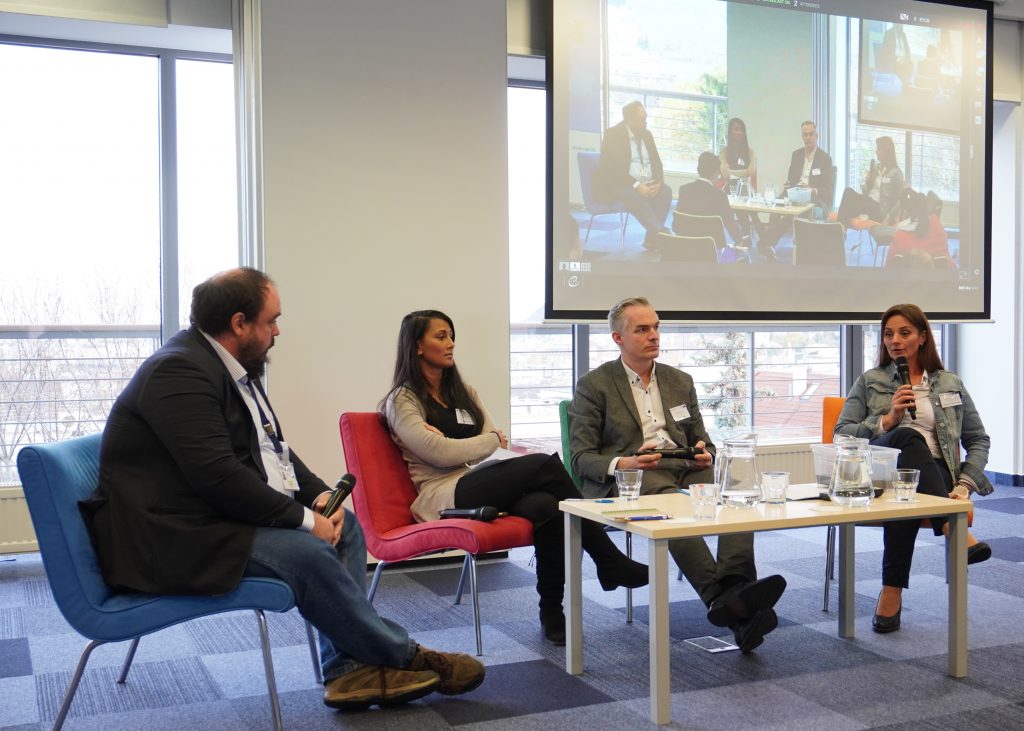
The panel discussions were followed by five parallel workshops on different topics such as:
- Online/offline hate speech and counter-narratives in the light of positive and negative discrimination;
- Validation of fundamental and civil rights among Roma youth and their communities;
- Trends and challenges of education/further education and employment in the process of becoming a Roma intellectual;
- National and international good practices and methodologies in the field of structured dialogue in joint work with Roma youth;
- The effects of climate change in disadvantaged communities.
The conference created an opportunity for participants to share their experiences, to gain insight into the youth and Roma strategies that affect them, as well as to ask their questions and express their opinions to the relevant decision-makers. Leaders, representatives and volunteers of Roma youth organizations, as well as Roma and non-Roma young people and professionals interested in the field of Roma participation, were able to have a constructive conversation about the challenges, opportunities and good practices affecting them.
